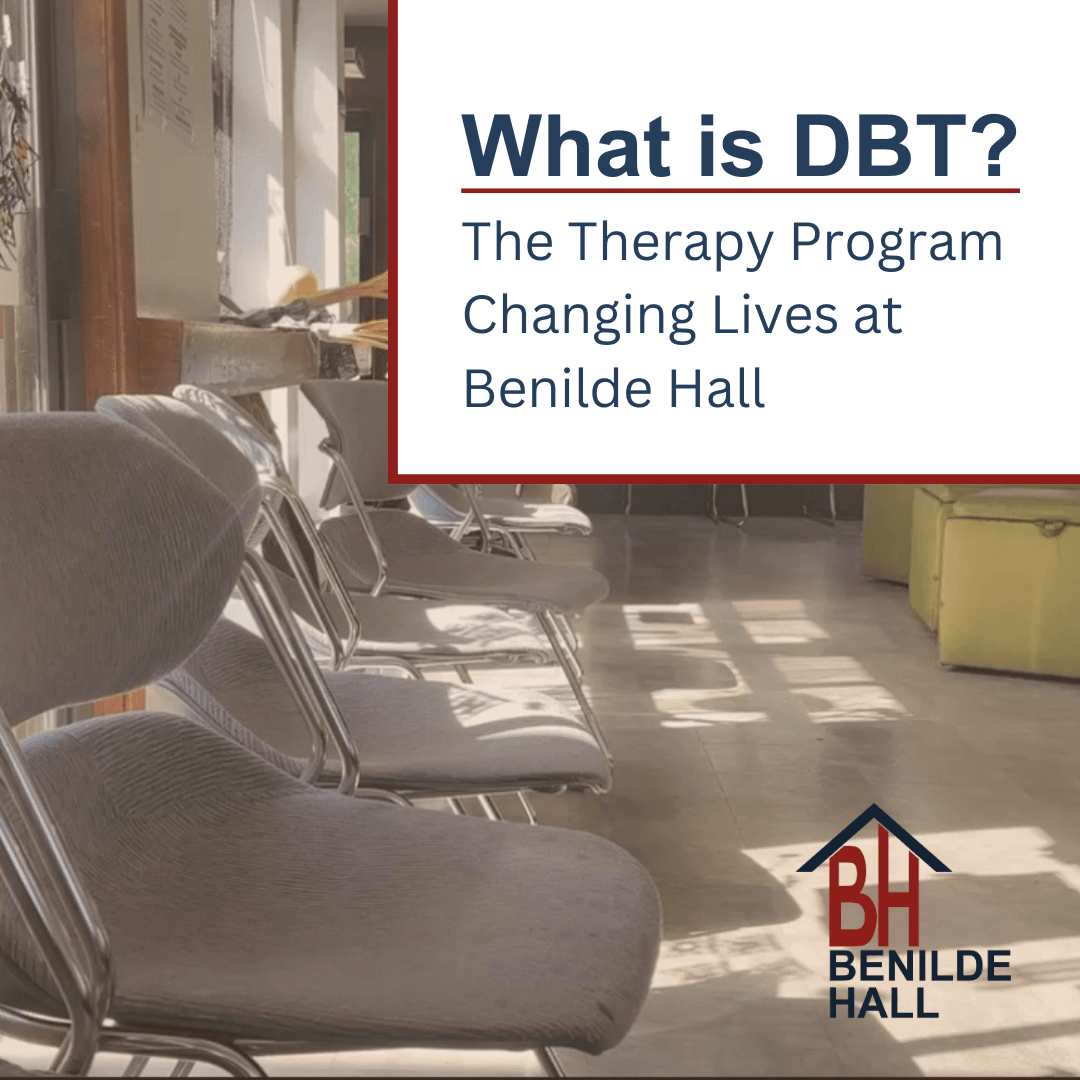
Many of us can appreciate the importance of mindfulness in our daily lives when it comes to dealing with stress, anxiety, and anger. Taking a moment to reflect on why we feel the way we do can help us to understand ourselves better and protect ourselves from extreme reactions, emotions, and impulses.
For Benilde Hall clients, DBT or Dialectical Behavior Therapy, helps them understand their emotions and approach difficult situations and feelings with a clear mind.
Benilde Hall provides three DBT groups per day, offered at different times of day so clients may attend the group that fits best with their schedule. Each week, the focus of the DBT groups rotate, covering topics such as foundational skills, mindfulness, distress tolerance, interpersonal effectiveness, emotional regulation, and DBT & Addictions.
Mark, former Benilde Hall client and staff member, considers the DBT groups at Benilde Hall some of his favorite learning experiences. Mark said,
"I enjoyed the DBT classes. It was an unfamiliar model to me. I've been through treatment several times [at different facilities] and the standard recovery stuff has been beaten into my brain for 20 years without any positive effect... it was nice to try from another approach."
The science-backed success stories of DBT make it an effective program that sets Benilde Hall apart from many one-size-fits all recovery programs. Benilde Hall clients are often facing more than one barrier on their journey to recovery, such as psychological disorders and trauma. DBT has been studied as a key tool in supporting individuals with co-occurring disorders who have not responded to other Substance Use Disorder therapies.
One of the skills learned in DBT groups is "S.T.O.P.", or "Stop, Take a Step Back, Observe, Proceed Mindfully". Katie Boehnke, a Benilde Hall Case Manager, says of STOP, "this skill empowers the clients to pause and assess situations rather than reacting impulsively to stressors". Just one attribute of DBT therapy, the STOP skill helps clients learn how to self-reflect and assess situations that might trigger extreme emotional reactions. Acting on these extreme emotions can often be damaging to themselves and their relationships with others. Benilde Hall case managers and counselors work to provide clients with the tools they need to limit these impulsive reactions and make decisions with a fully informed, calm mind.
DBT classes can sometimes be overwhelming to new clients but Katie says, "I feel that DBT definitely can resonate with everyone." To make the learning process more digestible, Benilde Hall staff break down the lessons into 3-day spans, including a dedicated "DBT process group" that allows clients to examine their learnings for the week and practice new skills through role play opportunities.
One of the most unique aspects of Benilde Hall is how deeply we understand our clients. By providing DBT groups and delivering them to clients in an accessible, comprehensive model, we can ensure our clients have the support and skills they need to be successful.
Our DBT classes are a prime example of how we dedicate our time, resources, and efforts to targeting the root causes of homelessness and substance use disorder. At Benilde Hall, we believe that every life matters, and that each individual has the potential to grow and learn.



























